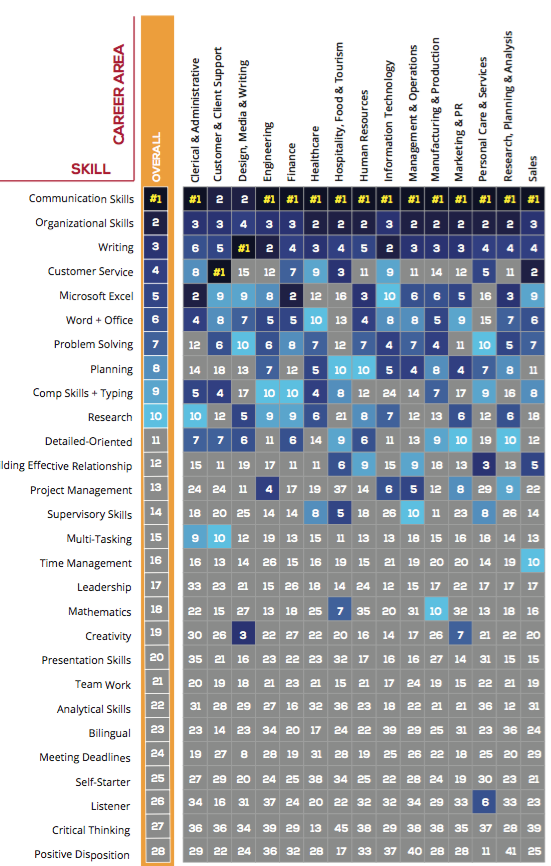What kinds of skills and abilities can help make you successful in the field of finance? In the following post, Suann Fields, CPA and Director of Finance and Operations at the Roman Catholic Foundation, will answer some questions related to the world of finance. She emphasizes the importance of professional communication in the field. Also, she offers some advice from her 29 years of personal experience and introduces some tricks of the trade to keep in mind for the future. By reading this blog, the reader can learn valuable information about finance and communicating in the finance field.
1. What is your professional history (include your timeline and roles)?
“Certified Public Accountant/Auditor – August 1990 – February 1994
Financial Services Manager – February 1994 – August 2002
Chief Financial Officer – August 2002 – April 2007
Director of Finance and Operations – April 2007 – June 2013
Chief Operating Officer – June 2013 – July 2014
Director of Finance and Operations – August 2014 – current”
2. What writing advice do you have for professional communicators?
“Communicate factually and succinctly using a broad, but useful vocabulary. Do not use too many words or too flowery language. Should be direct, specific to the intended audience, and meet the intended goal of the communication. Only answer questions or give the details that are necessary.”
3. What is your one pet peeve when it comes to professional writing?
“When the communication is not direct, and too many words and ancillary information is included in the writing.”
4. What kind of business reports do you read and/or compose regularly?
“Financial and investment reports/writings. Marketing and fundraising related materials. Accounting and finance related blogs and articles.”
5. What are your writing suggestions to make those types of reports successful?
“Determine the goal and/or purpose of the report. Outline the information or topics that are needed. Develop an outline or format to be used to report/present the information. Do research and gather the technical information needed. Compose an outline. Develop a draft. Review draft. Complete report.
Important to revisit goal/purpose while writing the report. Critically and throughout the process ask if the purpose or message is actually being appropriately and adequately presented.”
6. What speaking advice do you have for professional communicators?
“Write out an outline. Develop bullet points for content to support outline. Write out or rehearse your speech. Practice, practice, practice. Get comfortable with the communication. Be certain that you understand what you are speaking about.
Speak slowly and intentionally, articulate, and relax. Show confidence.
Get comfortable with your audience.”
7. Name one thing you wish you had known about business communication prior to your professional career?
“That there is NO need to be nervous about public speaking. Anyone can speak and present publicly with confidence. The audience wants to hear what you have to say.”
8. After assessing the Burning Glass list of Baseline Skills (2016), which skills not in the top 5 would you move into the top 5…and why?

“I would move #7 – Problem solving into the top 5. There is not a day that goes by in the business world that the skill of problem solving is not utilized and required to some degree. Something as basic as developing your to-do list for the day requires problem solving abilities, which include prioritizing, fact gathering, critical thinking, and allocation of resources. As a manager, to be highly productive and influential, you must require your team to employ these skills.”
9. What team skills do you feel young professionals need the most?
“Young professionals need good communication skills which include listening and effective speaking. They also need the ability to put aside their own agendas for the good of the team and company. This requires humility and a level of emotional intelligence.”
Key Takeaways
There are many important pieces of information that some one can take away from this interview with an expert. When communicating in the business field, it helps to only answer the necessary questions, and also show enough detail to present all of the needed information. While being descriptive, unnecessary or flowery language may cause you to go into too much detail and make the necessary information difficult to find. When writing a report or making a presentation, composing an outline helps to organize the information and thoughts. Upon completing this outline and adding the necessary information to form the report, develop a draft. Revise this draft multiple times until you can deem that the report displays only the necessary information in a clear and easy to understand way. Also, displaying confidence is incredibly important when presenting information in front of an audience. The audience wants to hear the information you present. The more you practice the presentation, the more confidence you will have in it when the time comes to present. When you in the audience of a presentation, listening well proves to be important. Good communication skills require both being able to speak well with others, but also listen well to others. Teamwork shows its importance in the workplace quite often. Many professionals learn to put aside their own feelings and emotions towards some aspects of the company. This is to put first priority on the good and well-being of the company as a whole. Being able to solve problems is one key skill professionals use in their every day lives. Problem solving makes unexpected conflicts and situations much easier to handle, consequently making the business more efficient. Even basic tasks require problem solving.
Biography of Expert
Suann Fields graduated from the Gies College of Business at the University of Illinois Urbana-Champaign in 1990 with a degree in Accounting. Since then, she has just over 29 years of experience in the accounting and finance fields. She entered the field of accounting in August of 1990 as a Certified Public Accountant and Auditor. In February of 1994 she became Financial Services manager and continued in this role for eight and a half years. Suann took on the title of Chief Financial Officer in August of 2002. Nearly five years later, she would take on the role of Director of Finance and Operations for six years before becoming Chief Operating Officer at Liguori Publications. Suann would hold this title of COO for just over a year before accepting the role of Director of Finance and Operations in August of 2014. This month, having already completed this interview, she recently accepted the job offer of Director of Finance at Collaborative Governance in St. Louis, Missouri. Suann also served as a member and also president of the Association of Catholic Publishers’ board of directors.
Biography of Interviewer
My name is Adam Gall. I am a third-year student at the University of Southern Indiana with a major in Business Administration with intent to switch to Accounting/Finance. I hope to manage numbers and accounts in the future by becoming a financial analyst or a stock analyst. Coming into college as an engineering major, I learned how to use excel and other different programs to manipulate numbers and information in a different way. Learning how to use these programs as an engineer differed from learning how to use the programs in the field of accounting and finance. However, I enjoy the way accounting/finance displays information in a more businesslike, rather than scientific, way.


